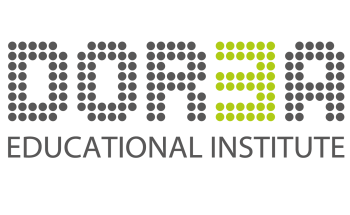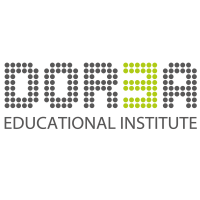
Learning in Digital Age: Coding for Schools
Coding is becoming a basic literacy in the digital age. To be able to thrive in tomorrow’s society, young people must understand and be able to work with the technology around them. Education systems around the world now have a goal to provide students with new possibilities to design, create and express themselves with digital technologies, starting from a young age.
Description
During the course, participants will be introduced to the concepts and key elements of computational thinking and coding, gain knowledge about coding languages for beginners and advanced-level users as well as learn about games that they can use to teach coding to their students. At the end of the course, each participant with the help of the trainer will make an action plan about how they can introduce coding in their classroom – which coding languages, games and tools they can use to make the learning engaging and fun for every student.
More information and the daily programme can be found here.
Learning objectives
The course aims to develop participants’ awareness and creativity in innovative pedagogies, that address 21st-century competencies & challenges as well as meet the educational goals of the educational system and students. After the completion of the course, the participants will be able to make informative decisions about pedagogy and the ways they can design learning environments to match learners’ needs to create, express themselves, collaborate with others and discover
Specific objectives of the training are:
- Raise awareness of technological development in teaching and learning
- Introduce the concept of computational thinking and how it is related to coding
- Introduce key concepts of programming and basic programming languages for teachers and students
- Introduce games teachers can use to teach students programming
- Show how to create a new learning environment incorporating coding in the classroom
- Improve the participants’ personal and professional skills in teaching
Methodology & assessment
Attention will be given to how to implement the findings and skills in real daily working situations after the training course. Methods such as debate, pair and group work, and individual practical exercises will be used throughout the course.
Assessment of the course combines formal and non-formal assessment methods such as self-evaluation at the end of the course and formal evaluation forms provided by the organisation.
Materials, digital tools & other learning resources
This course helps educators integrate coding into teaching through interactive materials, toolkits, and digital tools. Participants engage with case studies, scenario-based learning, and self-assessment tools to enhance computational thinking, digital literacy, and problem-solving skills. Practical resources support coding instruction in engaging and accessible ways.
Certification details
- Certificate of attendance
- Certificate of obtained competencies
- Europass mobility certificate
Pricing, packages and other information
-
Price:450Euro
-
Course package content:
- Course fee and training material
- Certificate of Competence
- Welcome dinner
- Administration costs
- Coffee Breaks
Cultural visit
You can find all the course packages, what is included and the prices here: https://dorea.org/packages/
-
Additional information:Description of the services and activities included in the course package (such as accommodation, meals, transport) or available at extra cost.
-
Cancellation & changes:
DOREA EDUCATIONAL INSTITUTE registration, cancellation/ rescheduling and refund policy can be found here: https://dorea.org/registration-cancellation-rescheduling-and-refund-policy/
-
Additional information:The options and conditions for change and cancellation, and the policy in case of unforeseen circumstances (force majeure).
Additional information
-
Language:English
-
Target audience ISCED:Primary education (ISCED 1)Lower secondary education (ISCED 2)Upper secondary education (ISCED 3)
-
Target audience type:TeacherICT CoordinatorPedagogical Adviser
-
Learning time:20-25 hours
Upcoming sessions
Past sessions
More courses by this organiser

Navigating Challenges: Nurturing Resilience and Effective Crisis Response in Education



